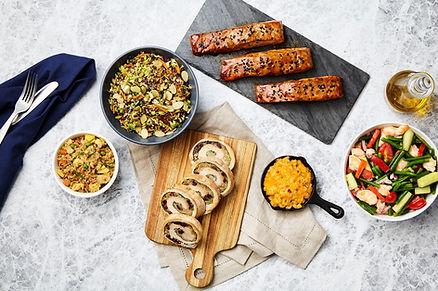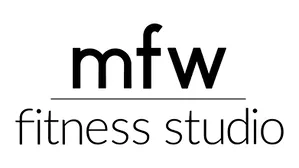Trial Our Group Classes
Start today. New clients only.

Macros and calories...excuse me what? Part 1
My name is Sally Taylor, and I am the Studio Manager and Strength, Conditioning, and Fitness Coach at MFW Fitness Studio.
After I posted on our members private Facebook group, I got a lot of interest and requests for information on this particular topic: macros and calories.
Let’s play simple. That's the way I like to keep things when it comes to eating… and life in general really!
Calories
Calories are a way that we can measure energy input into the body. Think of your body like your car. You need fuel to run it. Food is like petrol, and we need it in order for our body to “run”. We need food to live a healthy life.
How many calories do we need, you ask? Well, it varies. Many would say 1200 calories. In some ways this is correct – 1200 calories will give you what your body needs to just stay alive, sedentary, and not moving a muscle all day long. However, we need more than just that when it comes to burning energy.
There are a lot of brands and companies out there pushing people, especially women, to follow a 1200-calorie. In my opinion, this dangerous territory, especially if done for prolonged periods of time. It's a dangerous because it is the bare minimum you need, like I said, just for the body to not move a muscle all day. I'm pretty sure most of you are moving lots of muscles every day! Especially with MFW.
I would recommend a good calorie amount of 1500 to 1600 calories as a base to start with.
Your calorie intake needs to match your energy output. Energy output is when you move, you workout, exercise, walk… anything we do that requires energy to do so, is energy “output”. Its good to ensure that you are eating enough calories (energy input) to support your body moving throughout the day (energy output).
Macronutrients (Macros)
There are three main macronutrients also known as macros.
Macronutrients are made up of carbohydrates (carbs), protein and fat. They are all an essential part of building, supporting, and allowing the body to function properly. It is important to understand that we need all three macronutrients.
When we hear about the 1200 calorie diet or the no carb diet, the high fat diet, the low carb diet or even a high protein diet, it's important to remember that these diets may not benefit our bodies long-term.
We need all three macronutrients because each macro has an important role in the structure and how your body repairs itself.
- Carbs are an energy source, and they are broken down in the body in order to give you energy. So, if you have a low carb diet sometimes you will feel tired because the body is not consuming enough energy.
- Protein grows, builds and repairs the body. Protein helps build muscle and the more muscle you have the more fat burning your body can do. For many females we often fail to get enough protein in our diets. It’s a macronutrient that we often don’t eat enough of.
- Fats allow energy to be stored. Fats also help protect organs, assist with our membranes working correctly and help with regulating our hormones.
How much does someone eat?
When it comes to a breakdown of how much to eat of each macro, my general rule of thumb to begin with is 40% protein, 30% carbs and 30% fat.
What we need to remember is that not all macros are equal. A bowl of pasta (carbs) is not going to give us the same amount of nutrients as sweet potato (carbs). So, the best way to ensure that we are getting in the higher quality macros is to eat natural foods: veggies, salads, fruit, fish, meat. Avoid excessive amounts of bread, or drinking too much wine, will make a HUGE difference as to how your body functions and operates.
The beauty of counting or tracking calorie intake, is that you can incorporate or factor things into your daily calories, like wine. Once you start tracking, you can factor these things in so that you can still enjoy life! Because it is good to have imbalance and not deprive yourself of thigs you enjoy.
Let’s just touch base on the 40:30:30 breakdown of macros. As mentioned, this is a starting point for the basics, but will change depending on your goals. Take me for example, I am a body builder and therefore my goal is to grow muscle. Therefore, I am eating more protein in my diet. Compare me to Vicki, MFW’s Business Manager and Pre/Post Natal and Fitness Coach, who is a runner and when she runs, she runs long distances like 30 km + regularly, someone would like her would benefit from a higher carb diet. Reason being, she is going to be burning a lot more energy, so she needs more carbs to give her that energy!
Depending on your goals will depend on your macro allocation and you also need to listen to your body. If you are feeling tired or low on energy, then perhaps you are not eating enough carbs. Or if you do regular strength sessions and you pull up really sore, perhaps you possibly need to increase your protein intake. The body is good at letting us know what you need, so it’s important to listen to it.
This is what I personally eat…
I am currently eating 2300 calories a day. I have a higher fat and protein diet because my goals are to build muscle mass and reduce body fat. I am not doing much cardio at the moment; therefore, my carb intake is lower.
I started on about 1400 calories. The higher my calories increased, the more body fat I lost. Yes, that’s right – the more body fat I lost! How I have done this is by getting the balance right from the beginning and not depriving myself too much from the start. I listened to my body, and I wasn’t afraid to increase my calorie intake. Many women think they need to starve themselves of food to get the body they want. I am living proof you don’t need to do that! You just need to eat the right foods and the right amount of food.
If you would like to discuss how MFW Fitness Studio can help you with your relationship with food and help you achieve your health and fitness goals, please contact us.


Opening Hours
Mon - Thur 6:00am - 9:00pm
Fri 6:00am - 12:00pm
Sat 6:00am - 12:00pm
Sun 7:00am - 12:00pm



